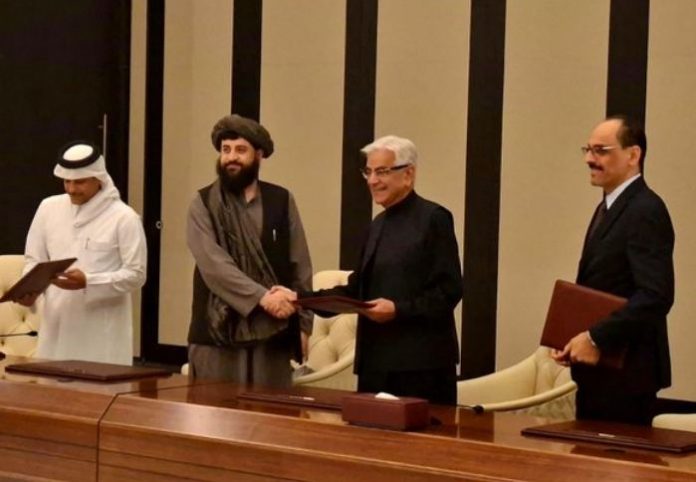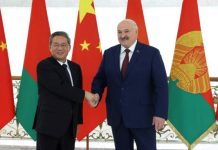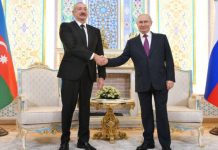PESHAWAR, NOV 2 (APP/DNA): As regional tensions and economic challenges persist across South Asia and the Middle East, the upcoming Istanbul Dialogue, scheduled for November 6, has emerged as a promising platform for Pakistan and Afghanistan to rebuild trust, strengthen cooperation, counter terrorism, and pave the way toward lasting regional peace and stability.
Despite the collapse of the first round of peace talks in Istanbul due to the rigidity of the Afghan Taliban, Pakistan has agreed to participate in another round of talks aimed at addressing all outstanding issues, including cross-border terrorism emanating from Afghanistan through peaceful means.
Observers believed that the Istanbul dialogue offers a neutral setting for candid discussions, practical confidence-building measures, and verifiable guarantees, particularly on controlling terror groups and proxies infiltrating from Afghanistan and carrying out attacks inside Pakistan.
“All eyes are on Istanbul, Türkiye, where another round of crucial peace talks between Pakistan and Afghan Taliban will take place on November 6,” said Dr. Ejaz Khan, a foreign relations expert at the University of Peshawar, while talking to APP.
“These talks especially focused on stopping terror groups operating against Pakistan if successful hold the potential to ensure regional peace and stability.”
He said that Turkey’s facilitation added credibility and balance to the process, which could lead to a roadmap for durable peace and economic cooperation.
“The pressure is mounting on the Afghan Taliban regime to engage in constructive dialogue with Pakistan to bring Fitnaul Khwarij (TTP) to justice,” he added.
Dr. Ejaz said this is a critical moment for the Afghan Taliban, as Pakistan has raised serious concerns about the presence of terrorist groups such as the banned Tehreek-e-Taliban Pakistan (TTP) and Fitnaul Hindustani in Afghanistan, and has demanded decisive action against them and demanded verifiable guarantee which is right of all parties engaged in negotiations.
Citing reports, he said that Afghanistan continues to serve as a safe haven for terror groups, with an estimated 3,000 to 4,000 TTP terrorists still present there. Many hardcore TTP operatives, released from Afghan prisons after the Taliban takeover in 2021, are being used as proxies against Pakistan, he added.
Dr. Ejaz argued that the Afghan Taliban have been using terrorism as a tool to achieve financial leverage. He emphasized that Pakistan’s demand for decisive action against terror groups and dismantling of their training camps is consistent with both the Doha Agreement and the UN Charter.
He explained that under the Doha Agreement, the Afghan Taliban are obligated to prevent the use of Afghan soil by terrorist groups against any other country, including Pakistan.
Tracing the conflict’s roots, he said Afghanistan has been the epicenter of global rivalries since the 1979 Soviet invasion and later the 2001 US-led intervention that toppled the Taliban regime.
He stressed that Pakistan has consistently pursued a responsible approach toward Afghanistan, guided by shared geography, culture, and security interests.
However, he reiterated that Pakistan’s constructive role has often been misunderstood internationally due to propaganda by hostile elements and pessimistic rhetoric by anti-Pakistan forces.
“No country has suffered more from the Afghan conflict than Pakistan,” he said, pointing out that Pakistan has hosted over four million Afghan refugees, suffered thousands of casualties due to terrorism, and incurred economic losses worth billions of dollars.
He added that Pakistan has always facilitated the voluntary repatriation of Afghan refugees and, just yesterday, reopened the Torkham border to ease their return.
Dr. Zahid Anwar, Professor at the Department of Political Science, University of Peshawar, said the Istanbul Dialogue offers a “golden opportunity” for the Afghan Taliban to rise above personal interests and provide verifiable guarantees to act against the TTP, Fitnaul Khwarij Hindustani, and other terror proxies.
He recalled that following the 9/11 attacks, Pakistan became a frontline ally in the global war on terror, losing more than 80,000 lives and suffering economic losses exceeding $150 billion.
Dr. Zahid emphasized that Pakistan’s military and strategic patience should not be mistaken for weakness.

















